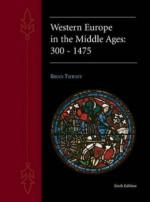|
This section contains 331 words (approx. 2 pages at 300 words per page) |

|
Necessity. Once the First Crusaders were able to conquer the Holy Land and establish their kingdoms there in 1099, they were faced with the necessity of ruling a disparate population, most of whom had never been governed by European laws or customs. Furthermore, it quickly became apparent, with the return of many of these Crusaders to their homes in Europe, that the majority of administrative and judicial officials needed to govern the newly conquered population would also be subject peoples, probably Jews and Muslims. These officials, while they might function based on their own laws and traditions, would have to be controlled from above by the Resident Crusaders, based on a European legal system.
Dual Offices. Local officials collected taxes and sent them to their Secretes, Resident Crusader revenue offices, and from there to the Grant Secrete, the...
|
This section contains 331 words (approx. 2 pages at 300 words per page) |

|




